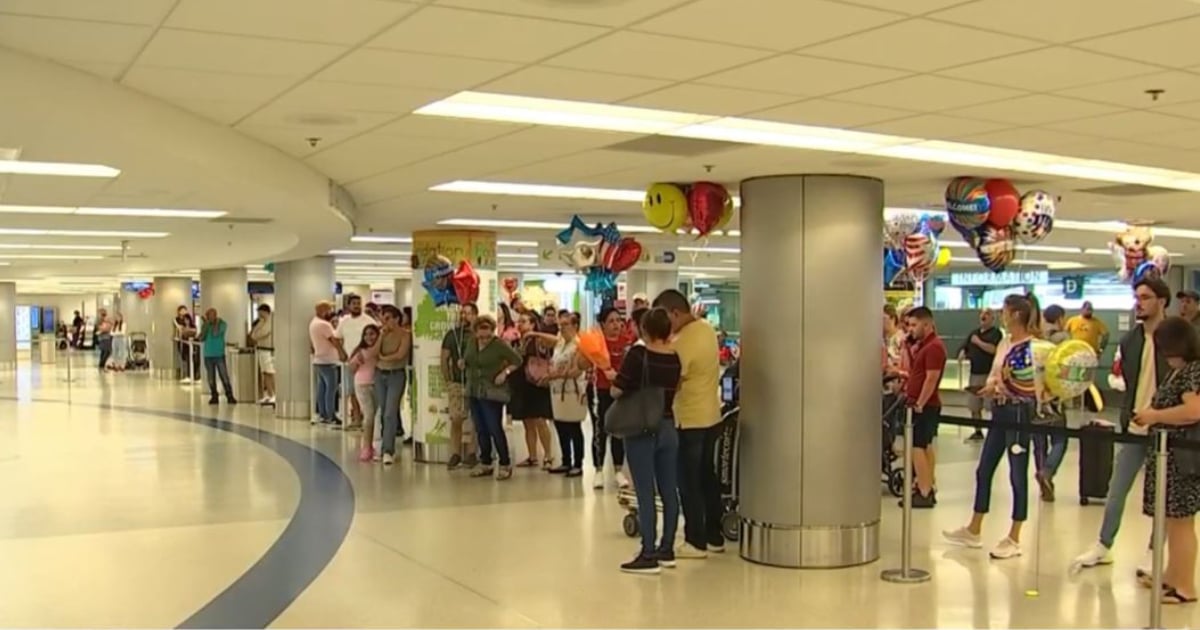The United States Supreme Court has granted the Trump administration permission to dismantle the humanitarian parole program that provided temporary legal status to over 500,000 migrants from Cuba, Venezuela, Nicaragua, and Haiti. This ruling could lead to the massive expulsion of hundreds of thousands currently living legally in the U.S. In a brief but impactful order, the court accepted an emergency request from Homeland Security Secretary Kristi Noem to immediately terminate the program initiated by Joe Biden in 2022, which allowed migrants from these four nations to enter the U.S. under specific conditions, granting them legal residency and work rights for two years.
The decision was met with dissent from liberal justices Ketanji Brown Jackson and Sonia Sotomayor. Justice Jackson criticized the court for overlooking the “devastating consequences” of this sweeping revocation, which will affect individuals with pending legal proceedings and established lives in the U.S.
End of a Key Biden Administration Program
The CHNV humanitarian parole program, launched by former Homeland Security Secretary Alejandro Mayorkas, aimed to alleviate the migratory pressure on the southern border. It allowed entry for individuals with legal sponsors in the U.S. after passing security checks, offering a safe and orderly pathway to temporary residence. Since its inception, over 532,000 migrants have benefited from this initiative. Now, with the Supreme Court's decision, the Trump administration can reverse this status without individual assessments, which had previously been blocked by federal judge Indira Talwani in Massachusetts.
Judge Talwani's ruling had required that the legal status of these individuals not be annulled without case-by-case analysis. However, the Supreme Court's order suspends that decision, paving the way for Trump's policy.
Impact: Half a Million at Risk of Deportation
Civil rights groups and migrant advocacy organizations like Haitian Bridge Alliance have warned that the decision instantly renders hundreds of thousands "undocumented, legally unemployed, and subject to immediate removal." This measure could devastate entire communities and force families to return to regions plagued by political instability, violence, and humanitarian crises, just as they were beginning to rebuild their lives in the U.S.
Earlier this month, Trump filed an emergency appeal with the Supreme Court to overturn Judge Talwani's ruling, which blocked the premature termination of the humanitarian parole program. Trump argues that the district court's decision in Boston interfered with his executive authority over immigration and foreign policy.
The administration contends that maintaining the program undermines federal efforts to deter irregular border crossings and complicates the rapid execution of deportations.
Revocation of Humanitarian Parole: How Many Cubans Affected?
In March, the Department of Homeland Security (DHS) announced the termination of humanitarian parole programs for citizens of Cuba, Haiti, Nicaragua, and Venezuela, as well as their immediate relatives. These programs, known as CHNV, allowed migrants temporary entry for humanitarian reasons or significant public benefit.
The DHS argued that these programs did not effectively reduce irregular migration or significantly improve border security, and they increased pressure on local communities, public resources, and the already overwhelmed immigration judicial system. The notice stipulated that existing paroles would expire 30 days after the official announcement, requiring those without another legal basis for staying to leave or face deportation proceedings.
It was estimated that around 26,000 Cubans would be left without legal protection following the revocation of the parole. This figure, according to journalist Wilfredo Cancio for Café Fuerte, included those who entered the U.S. after March 2024 and had not yet met the one-year-and-one-day residency requirement necessary to apply for the Cuban Adjustment Act (CAA).
A Supreme Court Favoring Executive Power... for Republicans
This case is part of an ongoing conflict between the Trump administration and federal judges who have previously halted his immigration agenda. Trump has consistently sought to expand presidential power without congressional approval. Now, with a conservative majority in the Court, his team has managed to reverse one of the Biden administration's most humanitarian policies.
Instead of serving as a check on executive power, the Supreme Court has chosen to strengthen Trump's executive arm, even at the expense of fundamental rights for thousands. While litigation is expected to continue in lower courts, the damage has been done: migrants with jobs, roots, and families in the U.S. now face the looming threat of deportation. What was once a pathway to relief and hope is now a broken promise sanctioned by the highest court in the land.
Frequently Asked Questions on Humanitarian Parole Revocation
What is the humanitarian parole program?
The humanitarian parole program was established to allow migrants from specific countries to enter the United States temporarily for humanitarian reasons or significant public benefit, with legal status for up to two years.
How many people will be affected by the Supreme Court's decision?
The decision affects over 500,000 migrants from Cuba, Venezuela, Nicaragua, and Haiti, who could lose their temporary legal status and face deportation.
Why was the humanitarian parole program terminated?
The DHS argued that the program failed to effectively reduce irregular migration, improve border security, and added pressure on local resources and the immigration judicial system.
Can affected migrants appeal the revocation of their status?
While individual appeals may be possible, the Supreme Court's decision currently stands, allowing the Trump administration to revoke the status without individual assessments.
